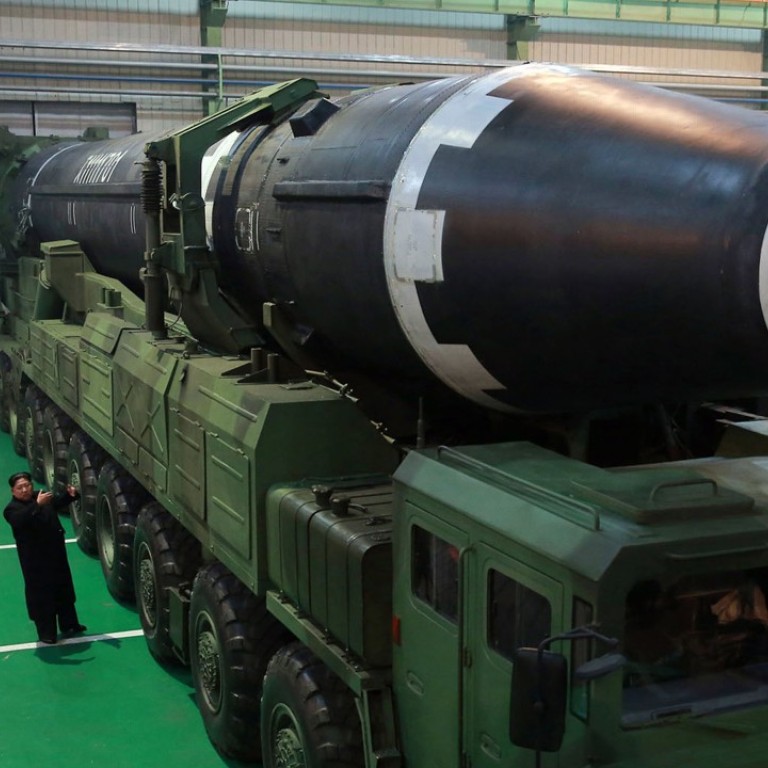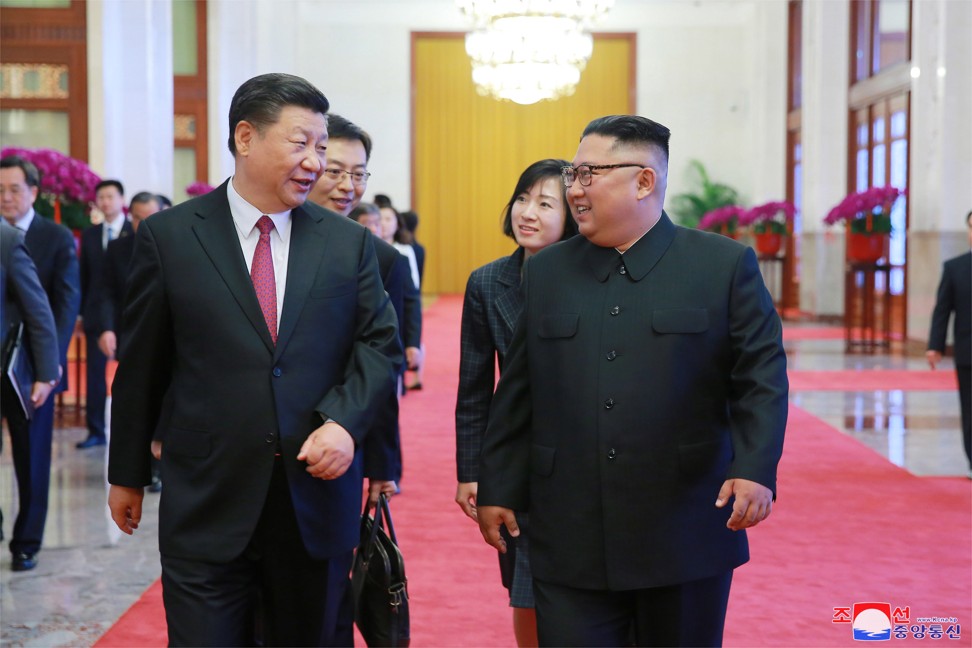
North Korea could slow down denuclearisation as it builds economic ties with China
Seoul officials fear Pyongyang may be trying to bring about economic change before it has fully denuclearised amid reports it is upgrading its facilities
Pyongyang’s denuclearisation efforts may slow down as the reclusive state is apparently trying to boost its nuclear deterrence capability and strengthen economic ties with Beijing, according to South Korean officials.
The assessment came after reports suggesting North Korea was upgrading its nuclear facilities and amid ongoing talks on economic cooperation between Beijing and Pyongyang.
“Beijing has promised solid economic support to Pyongyang throughout a series of bilateral summits held in China,” a senior South Korean diplomatic source said, adding that it was an attempt by the North to bring about economic change before it had fully denuclearised.
Washington has long demanded a “complete, verifiable and irreversible dismantlement” of Pyongyang’s nuclear programme, in return for economic compensation.
“North Korea can now start developing its economy without giving up its nuclear weapons [by strengthening economic ties with China],” the source said.
Pyongyang could be stalling as it seeks to build trust with long-time enemy the US before abandoning the nuclear programme that gives the regime security, the source added.
How Donald Trump sold out South Korea while furthering Kim Jong-un’s dream of domination
North Korean leader Kim Jong-un made his first visit to China in March, meeting Chinese President Xi Jinping in Beijing. He then met Xi in the northeastern city of Dalian in May, and again in Beijing last month, and Chinese state media reported that economic cooperation was on the agenda.

North Korean state media on Sunday reported that Kim had visited a cosmetics factory in the Sinuiju special economic zone, opposite Chinese port city Dandong.

Meanwhile, the North has reportedly upgraded its nuclear and missile facilities – despite Kim vowing “complete denuclearisation” during landmark talks with US President Donald Trump in Singapore last month.
Pyongyang has long demanded a “phased and synchronous” approach to denuclearisation, and for Washington to ease sanctions during, not after, the process. That would mean the North could continue its nuclear programme if it did not receive what it considered were sufficient economic incentives.
According to satellite images taken by Planet Labs and analysed by the Middlebury Institute of International Studies at Monterey, North Korea has continued construction at the Chemical Material Institute, a key ballistic missile plant near the city of Hamhung.
North Korea producing more nuclear fuel at multiple sites, according to US intelligence agencies
Modifications have also been made to the Yongbyon nuclear site, monitoring group 38 North reported last week. It said commercial satellite images showed work on the secondary cooling loop of its 5-megawatt plutonium reactor appeared to be complete.
The Washington Post also recently reported, citing US officials, that North Korea was preparing to deceive the US by planning to hide its nuclear stockpiles.
North Korea UN sanctions are hurting the vulnerable, aid workers say
While Seoul has played down reports of nuclear upgrades – focusing instead on sporting and cultural exchanges between the two Koreas as it tries to keep up the momentum for peace – some officials have expressed concern that the denuclearisation process could be faltering.
“It will be difficult for North Korea to fully denuclearise” in the short term, a separate South Korean diplomatic source said, adding that Kim could be trying to “deflect attention” with his economic push.
Washington, meanwhile, has made clear that it will continue to impose UN sanctions on the North until substantial progress is made on denuclearisation. After last month’s Kim-Trump summit, US Secretary of State Mike Pompeo said sanctions would not be lifted while Pyongyang still had nuclear weapons.

Cheng Xiaohe, an associate professor of international relations at Renmin University in Beijing, said stronger economic ties with China would give North Korea leverage in negotiations with the US.
“The recent talks with Trump definitely boosted the North Korean leader’s confidence,” Cheng said.
“Denuclearisation could take a very long time if Pyongyang doesn’t get what it wants – and that’s for sanctions to be lifted and normalisation of the diplomatic relationship.
“But conversely, if North Korea really wants to focus on the economy it will be better off giving up its nuclear programme fast, because China is not likely to violate the UN sanctions regime.”

